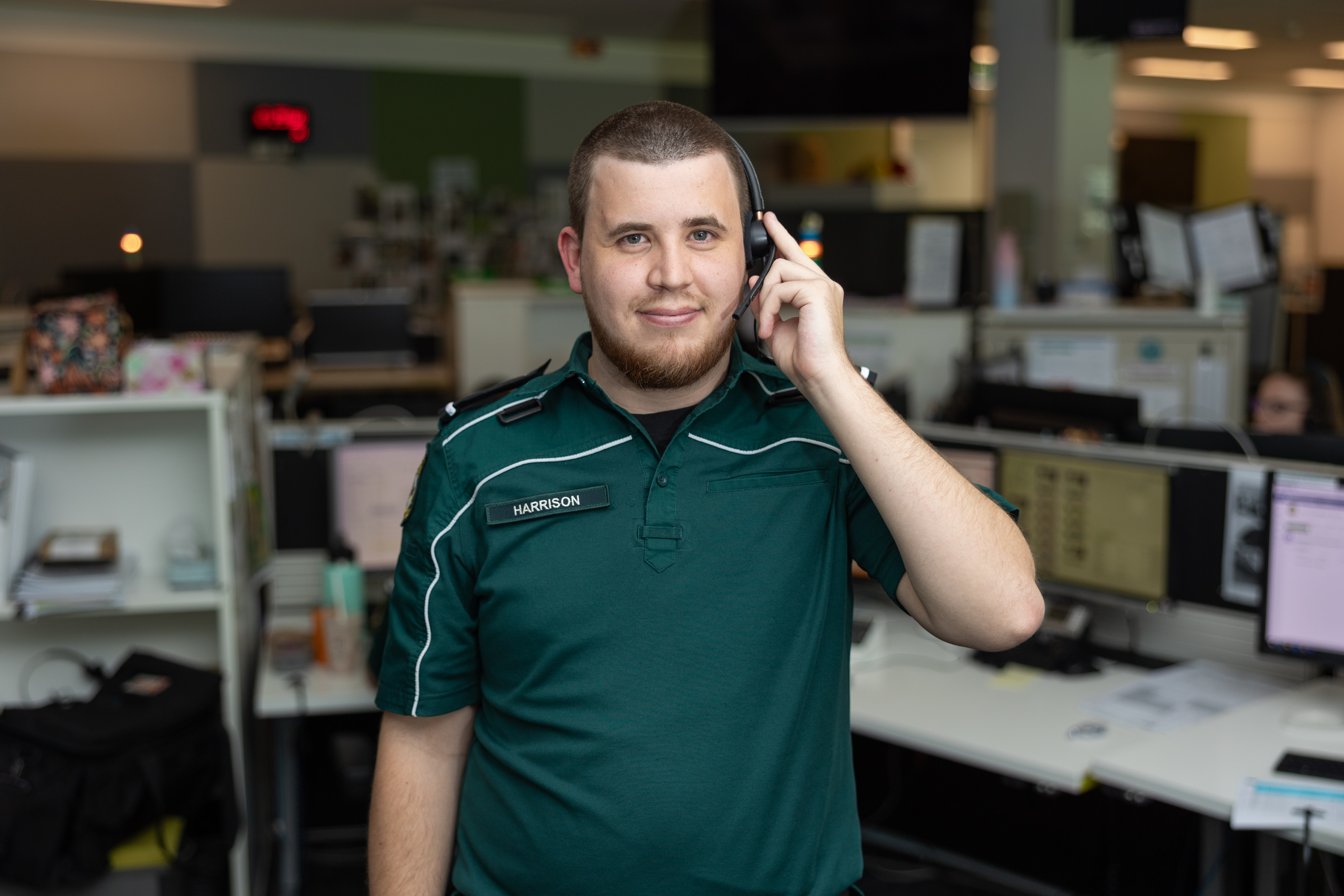Harrison’s interest in emergency call taking was initially sparked by his involvement with the New South Wales Rural Fire Service.
"I responded to a lot of emergencies with the NSW RFS as a volunteer, and, in the field, you rely on the information provided to you by the Communications Centre,” he remembers.
“That experience is a constant reminder of how critical it is to get accurate and timely information to our frontline responders, and I bring that into my job.
"There’s the human side too. People are ringing triple-zero in very stressful situations, so staying calm and guiding them to the help they need is incredibly important."
When someone dials triple-zero, Harrison describes the process: "I create the job, which then goes through to the Dispatcher and the Clinician, who sit near me in the Communications Centre.
“The Clinician listens in, to ensure everything is correct, and they help prioritise the response. It’s all about getting the best outcome for the patients."
The camaraderie in the Communications Centre is a major highlight for Harrison.
"There’s great support in the room. We’re always making jokes during downtime, and talking to each other. It’s a really good atmosphere," he says.
This support is especially crucial during high-pressure incidents.
"When things get intense, everyone pulls together. There’s a lot of support during and after the more difficult calls—whether it’s talking with teammates, going for a walk, or spending time with our service dog, Banksy."
Harrison says he felt well-prepared before starting in the role, thanks to the comprehensive training provided by the ACT Ambulance Service.
"I completed an initial six-week course with amazing trainers, who prepared us for both the technical and emotional aspects of the job,” he says.
“They taught us how to handle high-pressure or traumatic calls, while offering continuous support.
“I’m still regularly in touch with the trainers, and I often ask them for advice.”
All new Call Takers complete a Certificate III in Ambulance Communications (Call Taking).
Harrison says gaining that qualification involved some study, but most of the learning happened on-the-job.
A typical shift for Harrison begins with him arriving ahead of start time.
"I like to get in early, set up, find a good desk, and chat with the team to catch up on what happened during the previous shift,” he says.
“Then, I just jump into it. You never know what’s coming over the phone, but you’re never alone—it’s a team effort.
"It’s not as stressful as you might think, because of the excellent support we have."
Harrison also appreciates the flexibility of shiftwork: "I enjoy the four days on, four days off schedule. Having weekdays off is great—you can shop without the crowds and easily find parking!"
For those considering a career in call taking, Harrison encourages them to give it a go.
"It’s never the same day twice, which I love,” he says.
“You’re always talking to someone new or handling a different situation, and the opportunity to make a difference in people’s lives is immensely rewarding.
“One case that sticks in my mind was a young child who needed CPR. I guided the caller through it, the child survived, and knowing I played a part in that is incredibly fulfilling.
"You don’t need prior medical knowledge to make a real difference in this role. You just need to stay calm, think clearly and type quickly!”
If you’re looking for a role where you can make a real difference, explore a career as an Emergency Call Taker with the ACT Ambulance Service. It’s a job that offers variety, support, and the chance to be a vital part of Canberra’s emergency services.
